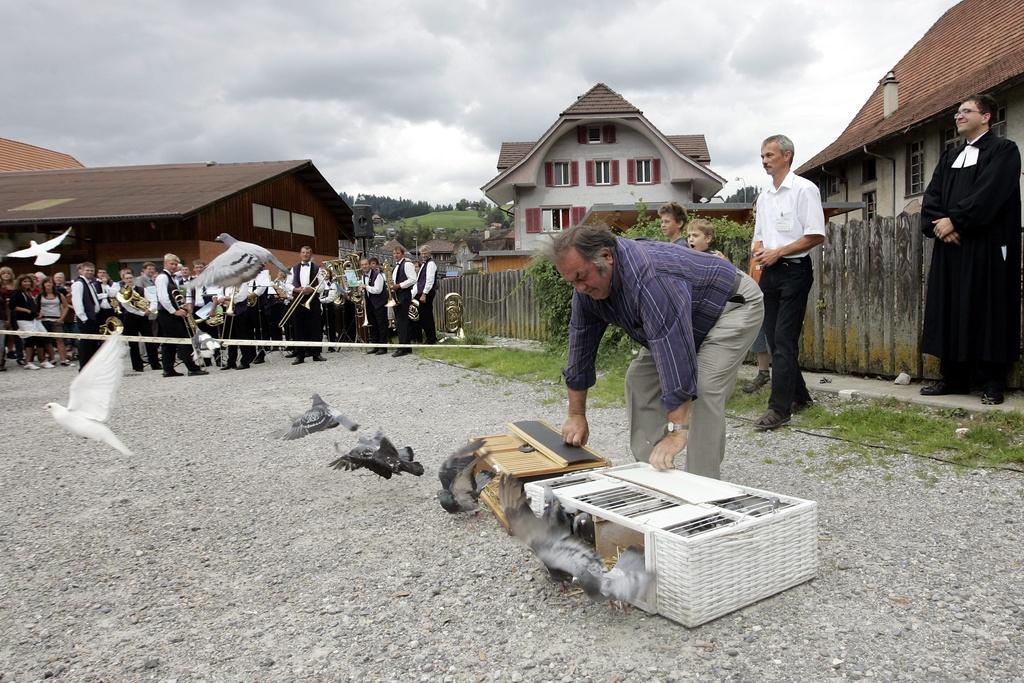
Swiss Mennonites forgive canton Bern for persecution

Swiss Mennonites have forgiven canton Bern for the suffering inflicted on their ancestors, the Anabaptists, from the 16th to the 18th century. The president of the cantonal government had asked for their pardon in November 2017.
A reconciliation ceremony took place in Tavannes, in the Jura hills of canton Bern, on Monday.
“Honouring and classifying the request needed some time, which we took,” said Jürg Bräker, secretary-general of the Swiss Mennonite Conference, in a statement. A reconciliation had already taken place between Mennonites and the Reformed Church.
Christoph Neuhaus, president of the cantonal government, attended the celebration in Tavannes. He said the persecution was an injustice that “still leaves traces today”.
Also present were representatives of the 13 Swiss Mennonite communities. The Mennonite community in Switzerland today has around 2,500 members.
Deeply rooted
The Anabaptists separated from the Reformed Church during the Reformation. They refused to attend official services, swear oaths and do military service. In addition, they advocated the baptism of adults.
In canton Bern, where the Anabaptist movement was deeply rooted, followers were systematically persecuted. It wasn’t until the Enlightenment that the persecution began to ease off. Religious freedom was eventually recognised with the founding of the Swiss federal in 1848.
Similar movements soon developed across western Europe. Followers, who became known as Mennonites after Menno Simmons, an Anabaptist leader from the Netherlands, were persecuted for refusing to participate in the state-run church.
Internal divisions led to a radical faction, the Amish, to split in 1693. Members took their name from Anabaptist leader Jakob Ammann, who came from canton Bern’s Simmental valley.
There are believed to be around 600,000 descendants of Swiss Anabaptists living in North America.

More
Religious tolerance is ‘Old Order’ of the day

In compliance with the JTI standards
More: SWI swissinfo.ch certified by the Journalism Trust Initiative





























You can find an overview of ongoing debates with our journalists here . Please join us!
If you want to start a conversation about a topic raised in this article or want to report factual errors, email us at english@swissinfo.ch.